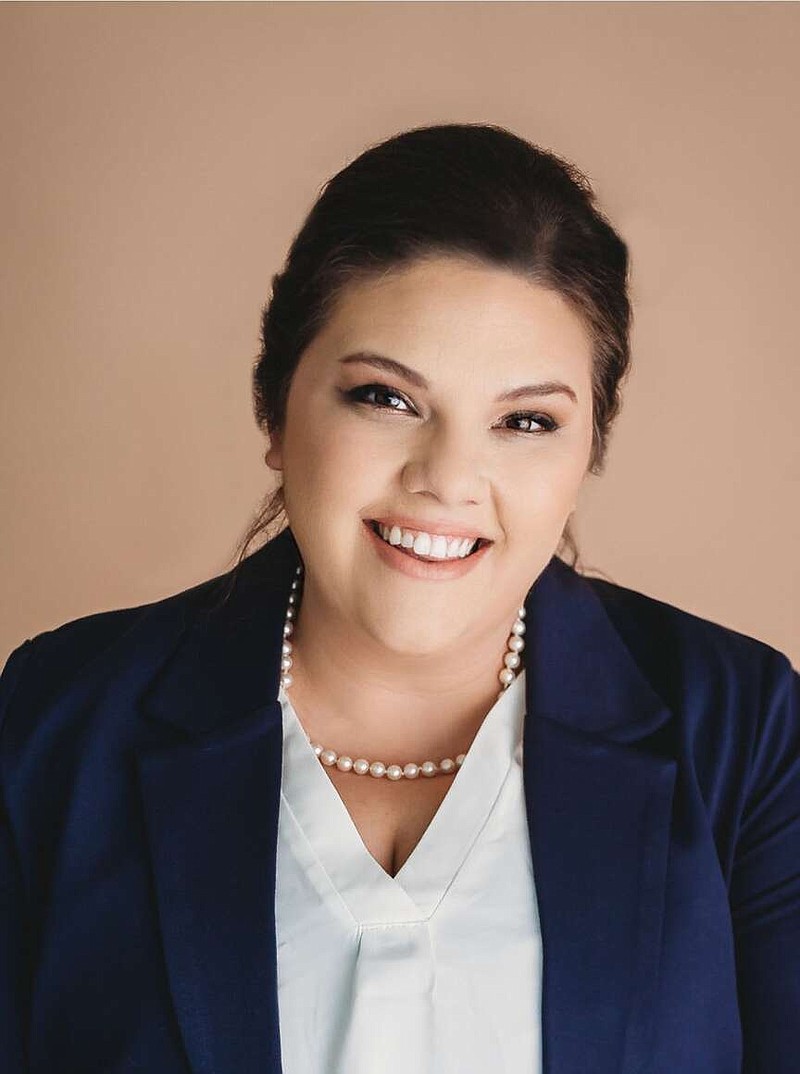The Democratic nominee for Arkansas' 3rd Congressional District found out Monday her pregnancy is not viable after four years of in vitro fertilization attempts -- possibly endangering her life under Arkansas law, she said in a phone interview Wednesday.
Candidate Caitlin Draper of Fayetteville asked her doctor if she can obtain an abortion in Arkansas if she needs one, she said. "She doesn't know," according to Draper.
"I can't grapple that my life is at risk because of extremism," Draper said. "Politicians do not need to be practicing medicine.
"Would you want politicians treating one of your loved ones for cancer?"
An Arkansas law banning abortions except to save a pregnant woman's life in a medical emergency took effect in June 2022, after the U.S. Supreme Court overturned its own 1973 ruling in Roe v. Wade that found the U.S. Constitution provided a right to abortion.
The campaign for Draper's opponent, incumbent Republican Steve Womack of Rogers, will not comment on this personal, family matter, the campaign said.
According to Draper, she went for routine prenatal care on April 4. Blood tests came back Monday showing nonviable HCG (human chorionic gonadotropin) levels for the pregnancy, which is 5½ weeks in progress. Her doctor called Draper back in for more tests on the same day. More extensive tests done Monday confirmed the earlier results and raised the possibility of an ectopic pregnancy, she said.
"I don't know if it's an ectopic pregnancy or not," Draper said, referring to the dangerous condition in which the fertilized egg attaches to some part of the body other than a safe spot on the wall of the uterus. For instance, the egg could lodge in the fallopian tubes attached to the uterus.
"I can leave the state if I have to, but what about women who can't?" Draper said.
Draper will have to return to the doctor if she does not miscarry by Friday, she said, so they can determine what action to take from there.
"An ectopic pregnancy can't proceed normally," according to the website for the Mayo Clinic, a renowned medical treatment and research center based in Rochester, Minn. "The fertilized egg can't survive, and the growing tissue may cause life-threatening bleeding, if left untreated."
Under Arkansas law, Draper would need to be in the throes of such an emergency before she could legally get an abortion, she said.
Congress should make law to protect reproductive rights, Draper said.
"I wanted this pregnancy. What can be more pro-life than that?" she asked.
Besides running a counseling clinic, having a private counseling practice and teaching classes, Draper took another job on weekends at a farm supply store so she and her husband could afford the $38,000 in costs incurred so far for their IVF attempts over the years, she said. She learned she was pregnant at the end of March, she said.
In Alabama, major providers of IVF temporarily stopped services after that state's Supreme Court ruled in February that frozen embryos are the legal equivalent of children. Some providers resumed the treatments after Gov. Kay Ivey signed a law last month shielding providers from liability.
Draper's pregnancy developments became public while she spoke at a campaign event Tuesday night in Eureka Springs.
"All throughout undergrad and grad school I worked in the emergency room, full-time night shift," she says in a recording of her remarks there. "I've seen with my own eyes a woman die from an ectopic pregnancy. It was a horrible sight."
"I'm just desperately trying to have a baby," she said, according to the recording.
